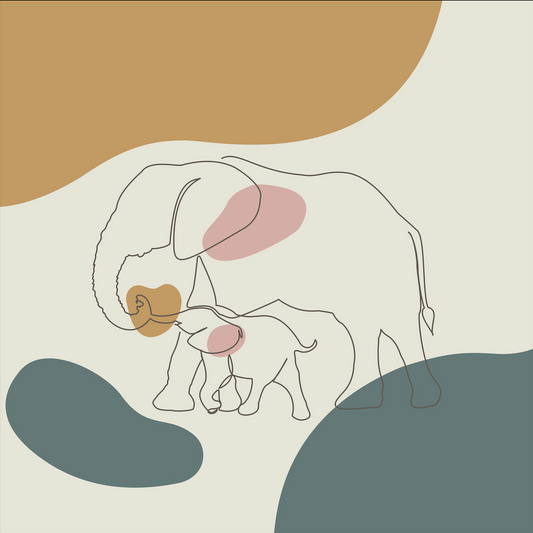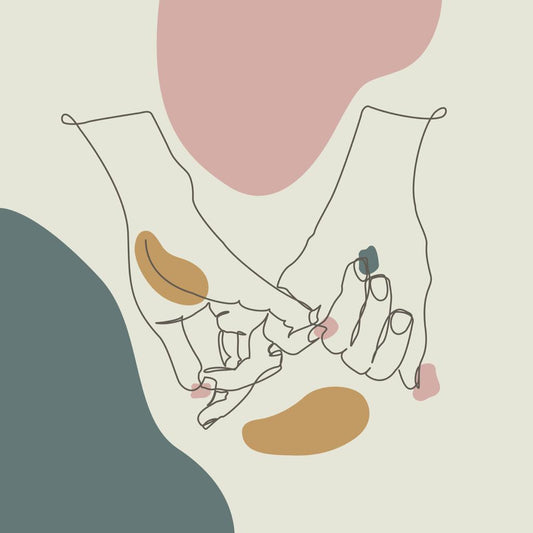I started really thinking about impact and sustainability when launching my business, Lineart. I wanted the business to have a positive, meaningful impact and spent a lot of time learning how I can do it. Here are my key takeaways.
The Curse of Small Wins
The concept of a carbon footprint has been around for a while, thanks to ecologist William E. Rees and his work in the 1990’s. However, the shift of its focus from products to us as individuals was thanks to a devious PR campaign by BP in 2004.
By unveiling the carbon footprint calculator, it got people caught up in their own carbon footprint and the impact they have, turning attention away from the larger culprits. A mere 100 companies are responsible for 71% of global emissions.
The media certainly helped drive forward this thinking, with guides on how to reduce our footprints.

Our intentions in reducing our carbon footprint are good; we all just want to leave the world a better place than when we came into it. But how much can we really do individually to combat the massive damages caused by companies such as the very one that brought this concept to us?
Over a decade ago, BP spilled hundreds of millions of gallons of oil into the Gulf of Mexico. How many plastic bags are we supposed to reuse in order to compensate for this?
When looking at our impact through this lens, it’s easy to feel helpless; how can we possibly do enough to both offset the damages done AND have an impact for the better?
Don’t lose hope, because we have more power than we think.
There may not be something we can do as individuals to counteract what companies BP do, but we can take the limited resources we have and apply them in a much smarter way to amplify our effect.
Here are 3 ways we can be smarter about having an impact, and think beyond the tiny wins we currently chase.
1. Prioritising Larger Initiatives
Have you ever felt bad about using a plastic bag because it’s not good for the environment? Have you ever felt the same way about eating a burger?
The odds are you haven’t (I know I never did). And yet, a burger actually has a greater carbon footprint than a plastic bag. This isn’t to say we should stop eating burgers, but to say that we should rethink how we try to have an impact.
It’s wonderful to see how we’re all striving to do our part and minimise damage where we can, but our intentions can come to greater fruition if we change our strategy.
We’re part of a massive system, and if we can aim to impact bigger parts of the system, instead of our tiny local area, we can see much greater returns on our investment.
Take grocery shopping for example; by avoiding plastic bags, we take a little step forward. BUT if we buy a single sustainable product, we’re now supporting a movement greater than just ourselves. Suddenly, our impact widens from a plastic bag to being a supporter of a local farm which supports acres and acres of farmland.

By putting your resources where they count the most, you can massively increase your impact without putting in more resources.
For me, the hardest part of this was coming to terms with the fact that we can't do everything; we have limited time, energy and money.
We see the multitudes of things we can be spending our resources on and we have to prioritise; maybe if I buy sustainably-sourced materials for the products I sell, I won’t be able to afford to donate to the local wildlife conservation project while maintaining a reasonable margin and price.
Knowing two things helped me get past this:
1. Any contribution is better than none at all; if you're thinking about this topic, you're already on a wonderful path. Give yourself credit for this.
2. You can't pour from an empty cup. Draining all our resources on every sustainable option we can see in front of us may ease our short-term guilt, but if we shift our focus to higher impact efforts, and conserve some resource, we can be in a much better position in the future to have an even greater impact.
I personally have big plans for my business Lineart's sustainability impact when it reaches a certain point in its growth, but if I try do that now, I'll never grow to the point needed to have that impact. For that reason, I've prioritised the greatest-impacting areas I could find which still allow me to scale, and I’ll address the shortcomings as my ability grows.
2. Educating Others
As a wise being once said, “apes together strong”.

You and I can work on all these aspects of sustainability to our heart’s content, and we’ll make some kind of impact, but if each of us inspires just one friend or family member to do the same, we’d have doubled our impact with a fraction of the effort.
We can leverage our knowledge to create huge impact by inspiring others, and it goes back to putting resources where they count; you can spend a week cleaning a beach by hand, or you can spend 6 days organising a beach clean-up day, raising awareness and gatherings dozens or hundreds of people for a day-long clean-up, and covering a significantly bigger area. Same time invested, much bigger impact.
3. Climate Entrepreneurship
As you can see, we can amplify our impact by being smart about our contributions. For some, this may not be enough; if doing your part as a consumer, and improving the sustainability of your small business isn’t enough, there’s a world of opportunities for initiatives of all sizes that tackle climate change.
The thought of starting a business may sound intimidating or off-putting. You don’t have to build the next WWF; you can truly create an impactful initiative starting with a bit of time and no money. Depending on your capability, you can then invest more time and money to scale it, or keep it small.
I’m dedicating an entire blog post to climate entrepreneurship ideas. In the meanwhile, a great place to find inspiration is Shopify’s Sustainability Fund Partners for larger-scale initiatives.
I also want to shout out TheGoodApi, who created a brilliant piece of software that allows businesses (including Lineart) to easily support reforestation through partnering with the Eden Reforestation Project. It’s a great example of how we can leverage skills such as software development to create something much larger than ourselves.

Smaller initiatives can be anything from a blog to educate others, to software that helps people make eco-friendly choices, or small-scale conservation efforts such as incentivising donation collection to support movements like the Eden Reforestation Project.
There Is Hope!
In summary, we can use our limited resources to create much more meaningful change if we think smarter about how we use them. We’re all capable of achieving incredible things, especially when we realise how we can benefit from each other.
I’ve got a long way to go with Lineart, and would love to hear from you on things we can do as small business owners and consumers to have an impact. Comment below! 🕊



